Filter products
Pregnancy
Pregnancy is a special phase in which an optimal supply of nutrients is of crucial importance. The role of folic acid, which makes a key contribution to the healthy development of the baby, should be emphasised in particular. Vitamins and minerals such as magnesium, B vitamins, vitamin D and calcium can also play an important role in promoting healthy development and supporting the immune system to ensure comprehensive care for mum and baby during this exciting journey. It is essential to optimise the individual needs of your body during pregnancy.

- Powerful combination: cranberry with 25% PAC, 500 mg D-mannose & L-methionine
- Naturally supplemented: D-mannose – a component of the cell membrane in the urinary tract
- With zinc for the immune system.
Content: 0.072 Kilogramm (€276.39 / 1 Kilogramm)

- Pure berry power: 400 mg cranberry powder per capsule
- With vitamin C: 75 mg per capsule – to support the immune system
- Ideal for every day: A fruity supplement for your daily routine
Content: 0.102 Kilogramm (€195.10 / 1 Kilogramm)

- Cranberry power – 400 mg extract per capsule, with 10 mg proanthocyanidins
- Micronutrient trio: with vitamin C, zinc and selenium – to support the immune system
- Plant power & micronutrients – cleverly combined for your daily well-being
Content: 0.0334 Kilogramm (€416.17 / 1 Kilogramm)

- 100% pure: D-mannose from corn – no additives
- Naturally occurring & plant-based: natural monosaccharide and cell component
- Particularly usable: slow absorption, easily soluble
Content: 0.1 Kilogramm (€219.00 / 1 Kilogramm)
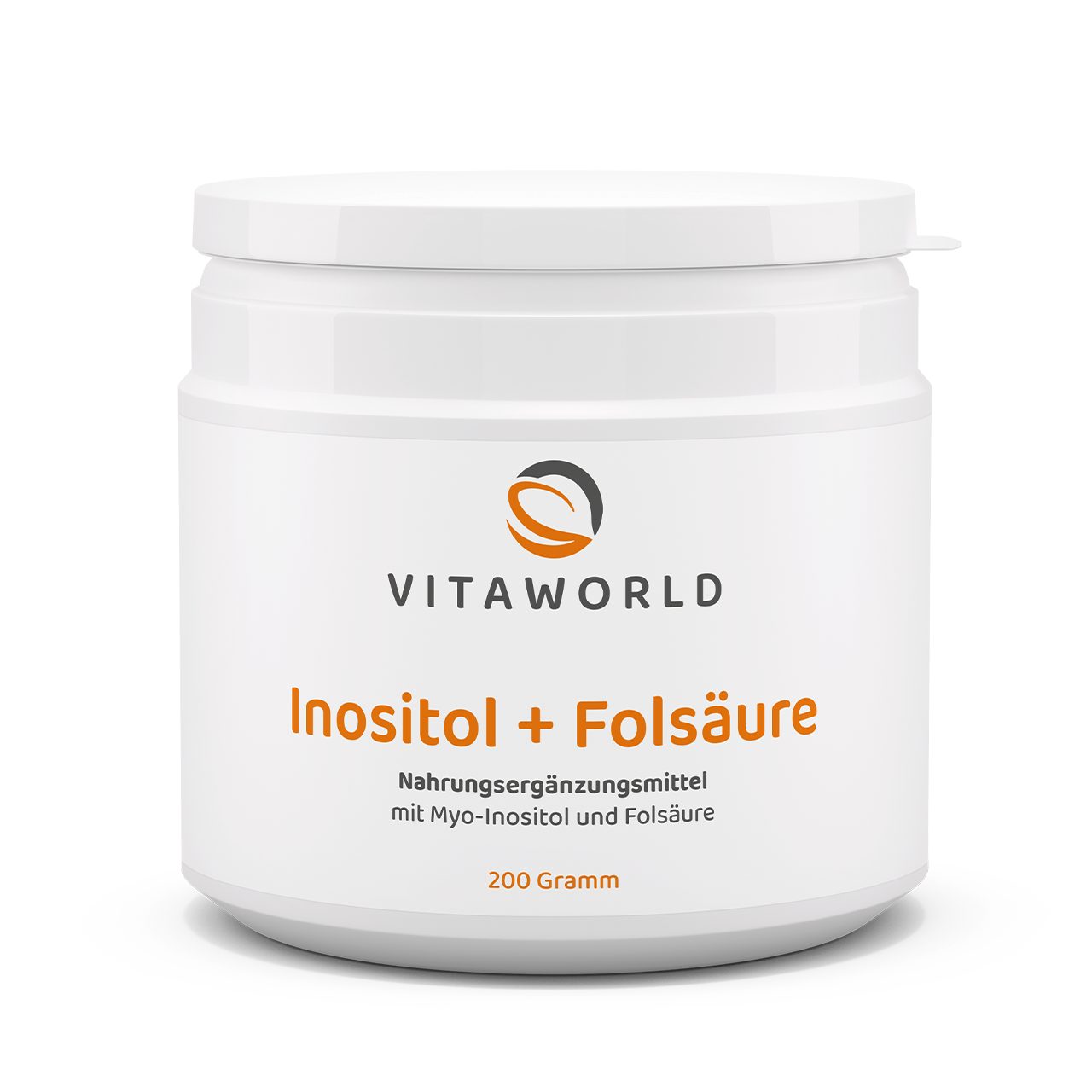
- 4.8 g myo-inositol + 800 µg folic acid per daily dose – perfectly combined
- Folic acid contributes to normal psychological function and cell division
- Pleasantly sweet taste – versatile and easily soluble
Content: 0.2 Kilogramm (€124.50 / 1 Kilogramm)

- 300 mg pure magnesium per tablet – high dose & effective
- Contributes to normal muscle function and healthy bones
- For active athletes & anyone with increased requirements – reliable supply
Content: 0.124 Kilogramm (€71.77 / 1 Kilogramm)

- Essential sulphur-containing amino acid – not produced by the body
- Important protein building block – involved in many metabolic processes
- Ideal for active lifestyles and conscious nutrition – targeted supplementation
Content: 0.2232 Kilogramm (€192.20 / 1 Kilogramm)
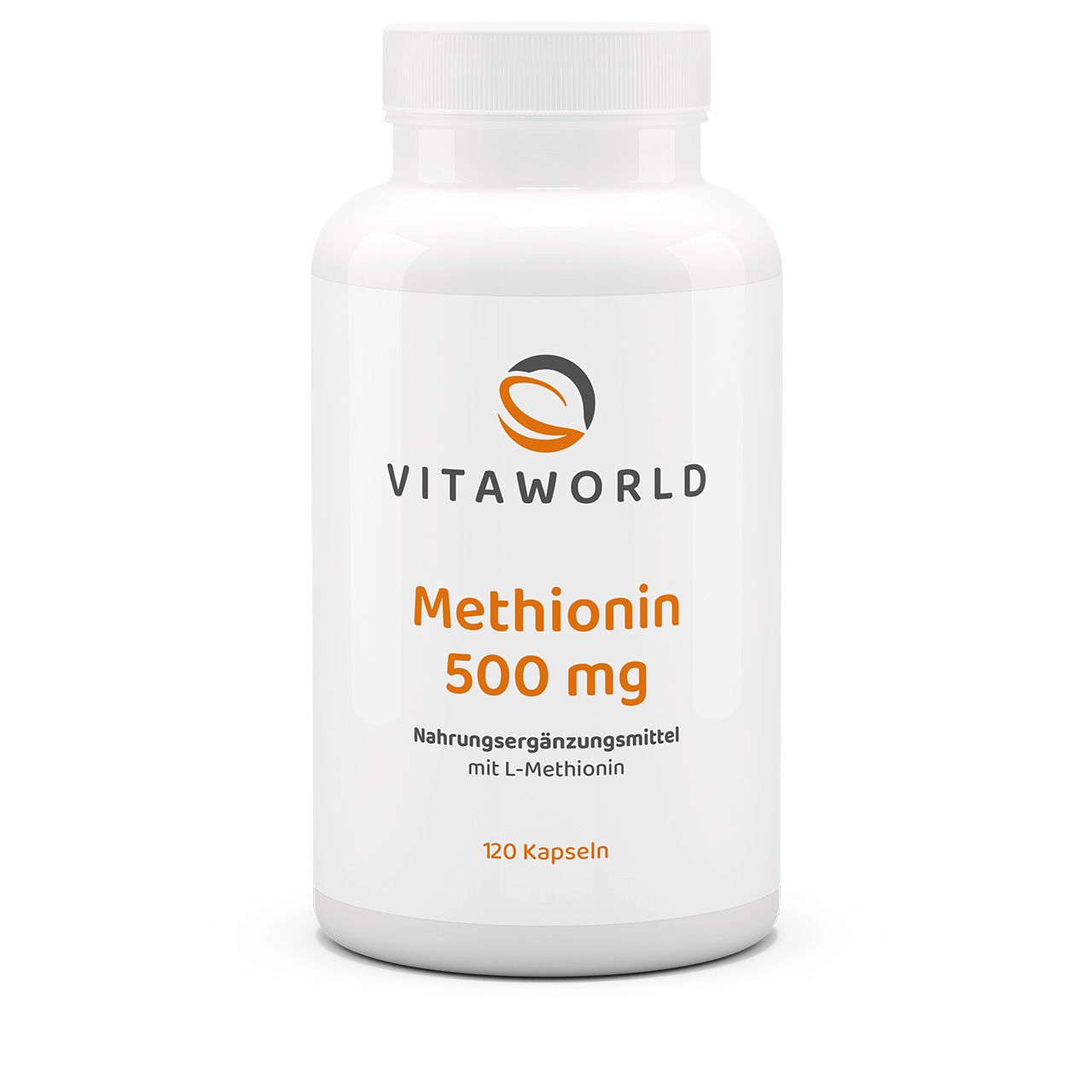
- Essential sulphur-containing amino acid – not produced by the body
- Important protein building block – involved in many metabolic processes
- Ideal for active lifestyles and conscious nutrition – targeted supplementation
Content: 0.0744 Kilogramm (€240.59 / 1 Kilogramm)
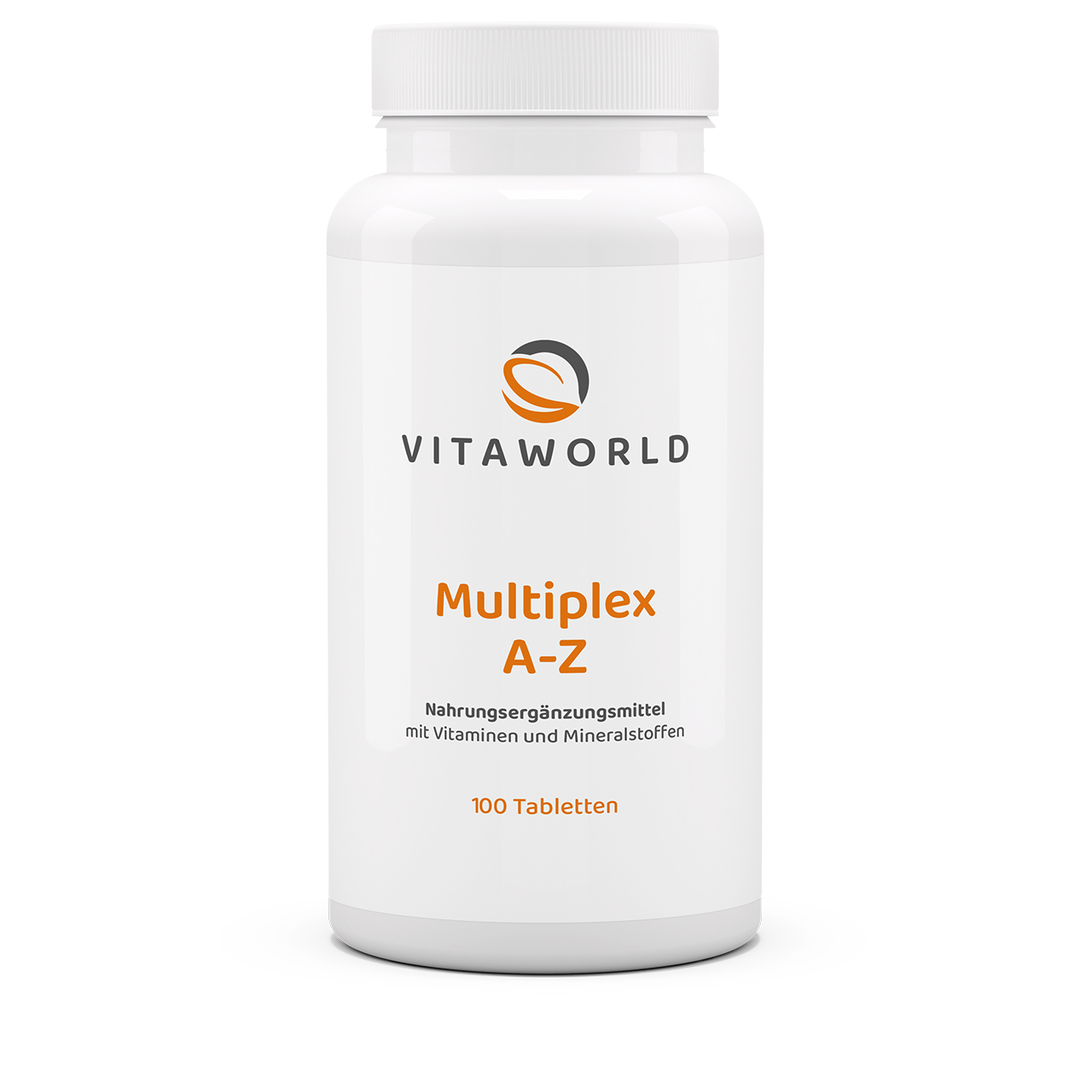
- With 24 carefully balanced vitamins, minerals and trace elements
- Contains all essential micronutrients – from A to Z
- For your daily all-round care – ideal for everyday use and when you need a little extra
Content: 0.0125 Kilogramm (€1,192.00 / 1 Kilogramm)

- With 17 selected vital substances – without iodine & vitamin K, specifically tailored
- Folic acid contributes to the growth of maternal tissue during pregnancy
- Developed for the special needs of pregnancy – gentle & effective
Content: 0.0555 Kilogramm (€268.47 / 1 Kilogramm)
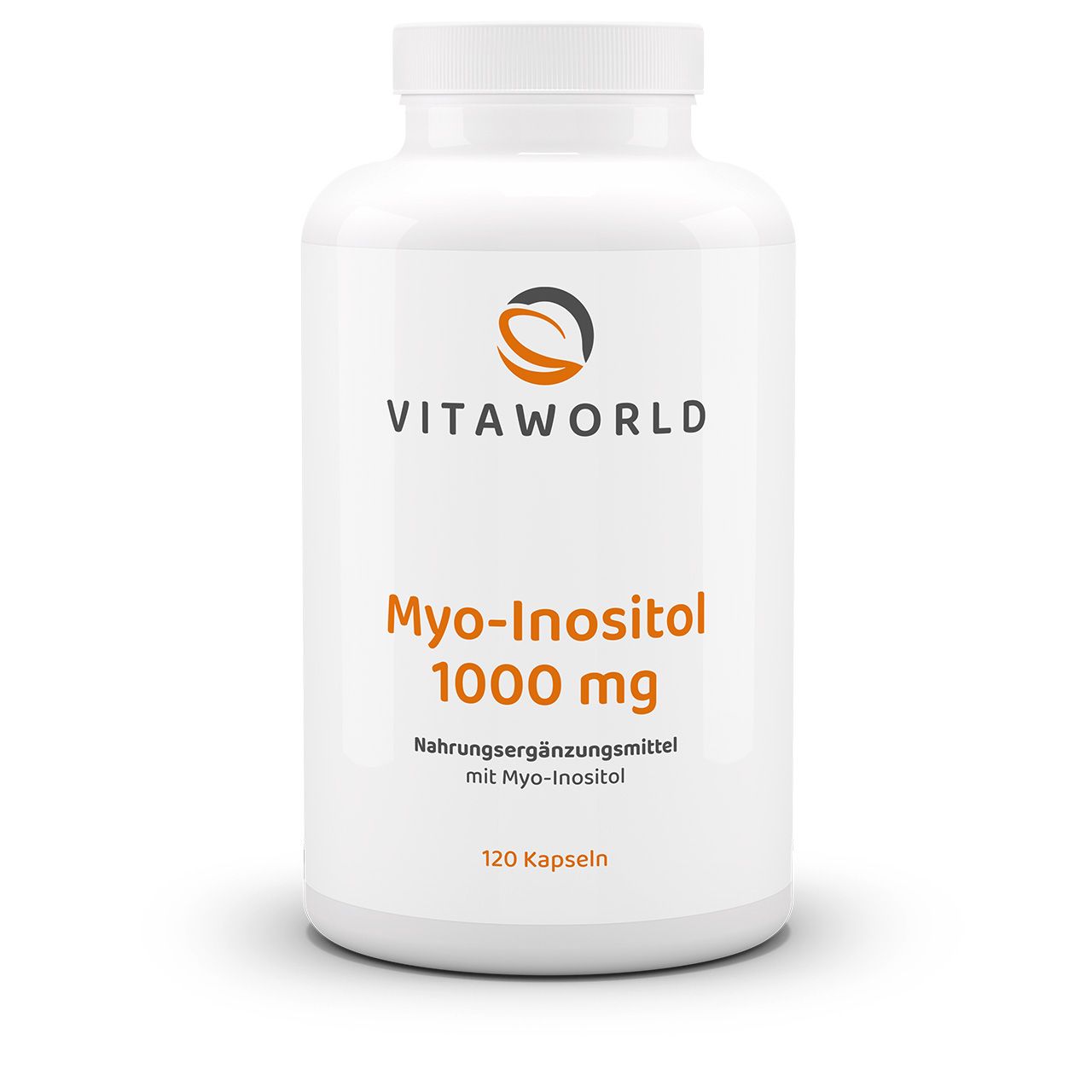
- Targeted supplement with 1000 mg myo-inositol per serving
- For a balanced everyday life at your own pace
- Gentle supplement for your daily cycle routine
Content: 0.1404 Kilogramm (€163.11 / 1 Kilogramm)

- 625 mg of high-quality algae oil per capsule – with 250 mg of DHA from Schizochytrium sp.
- Purely plant-based & iodine-free – ideal for a sustainable supply of omega-3
- Gently processed & protected from oxidation – from controlled cultivation, not sourced from the sea.
Content: 0.0102 Kilogramm (€3,911.76 / 1 Kilogramm)
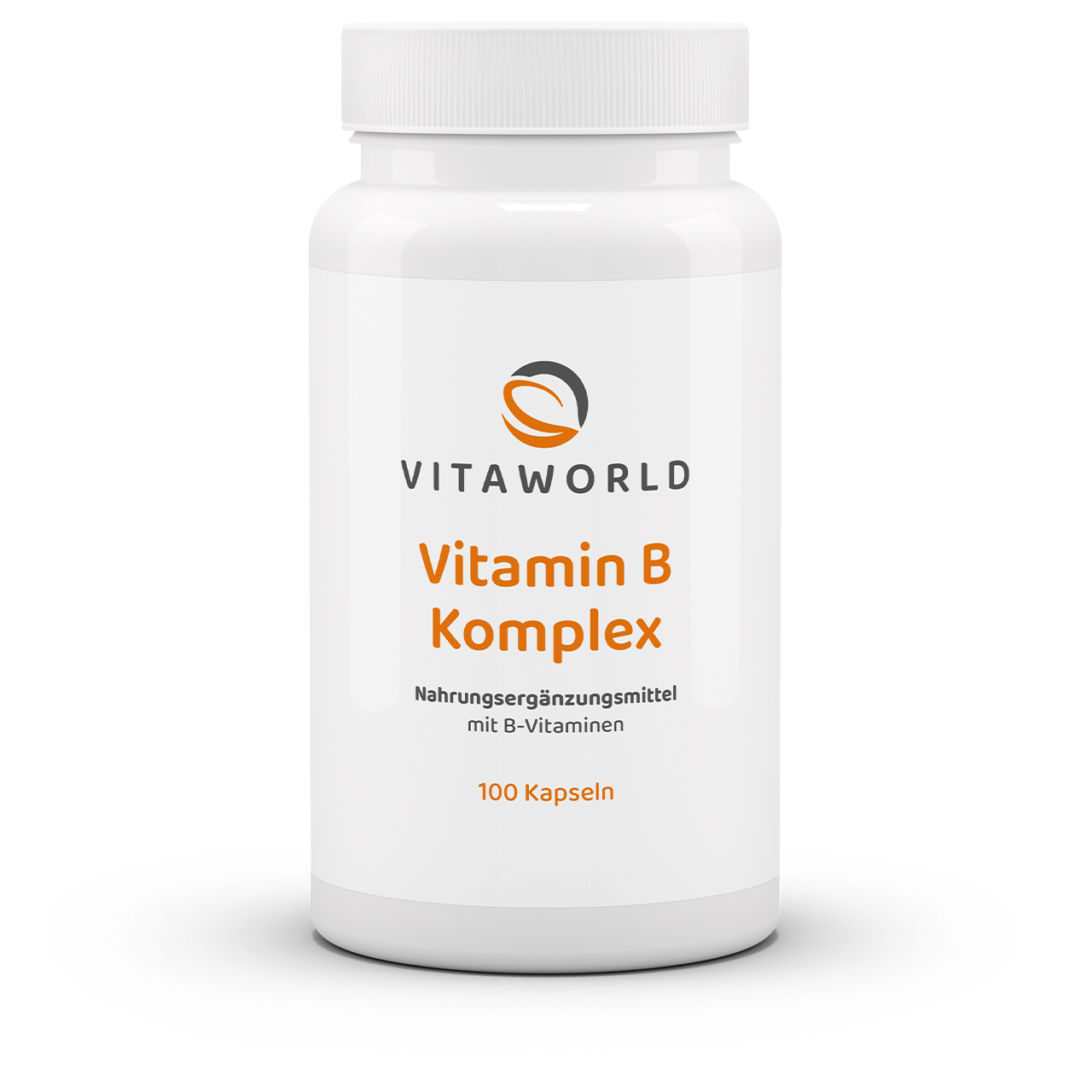
- All 8 B vitamins in one capsule – ideally combined & high dosage
- Supports energy production, cell metabolism & nerve function
- For times of high demands – physically and mentally
Content: 0.0413 Kilogramm (€263.92 / 1 Kilogramm)
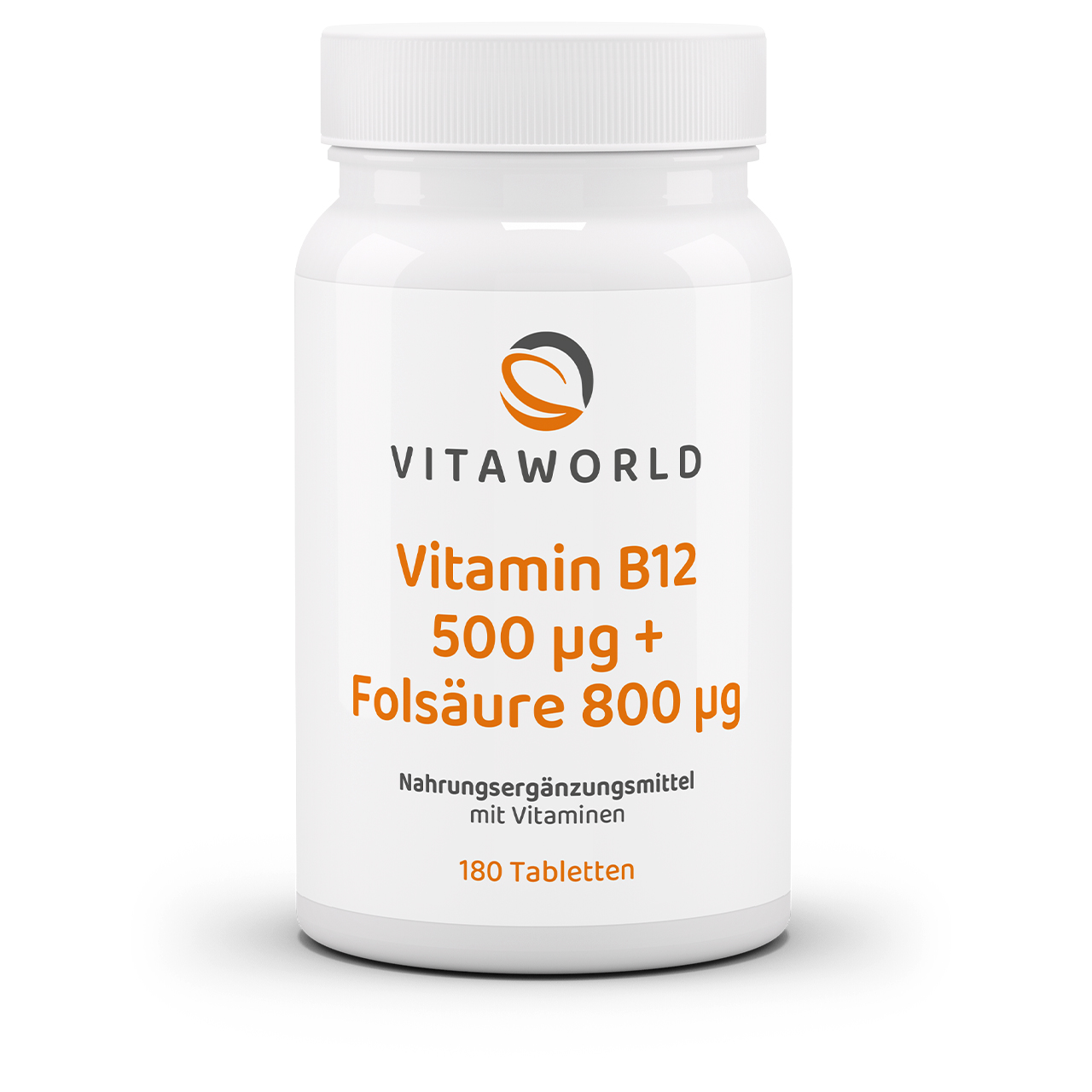
- Targeted supply of high doses of B12 and folic acid
- Contributes to normal homocysteine metabolism
- For the immune system, energy balance and mental balance
Content: 0.054 Kilogramm (€312.96 / 1 Kilogramm)
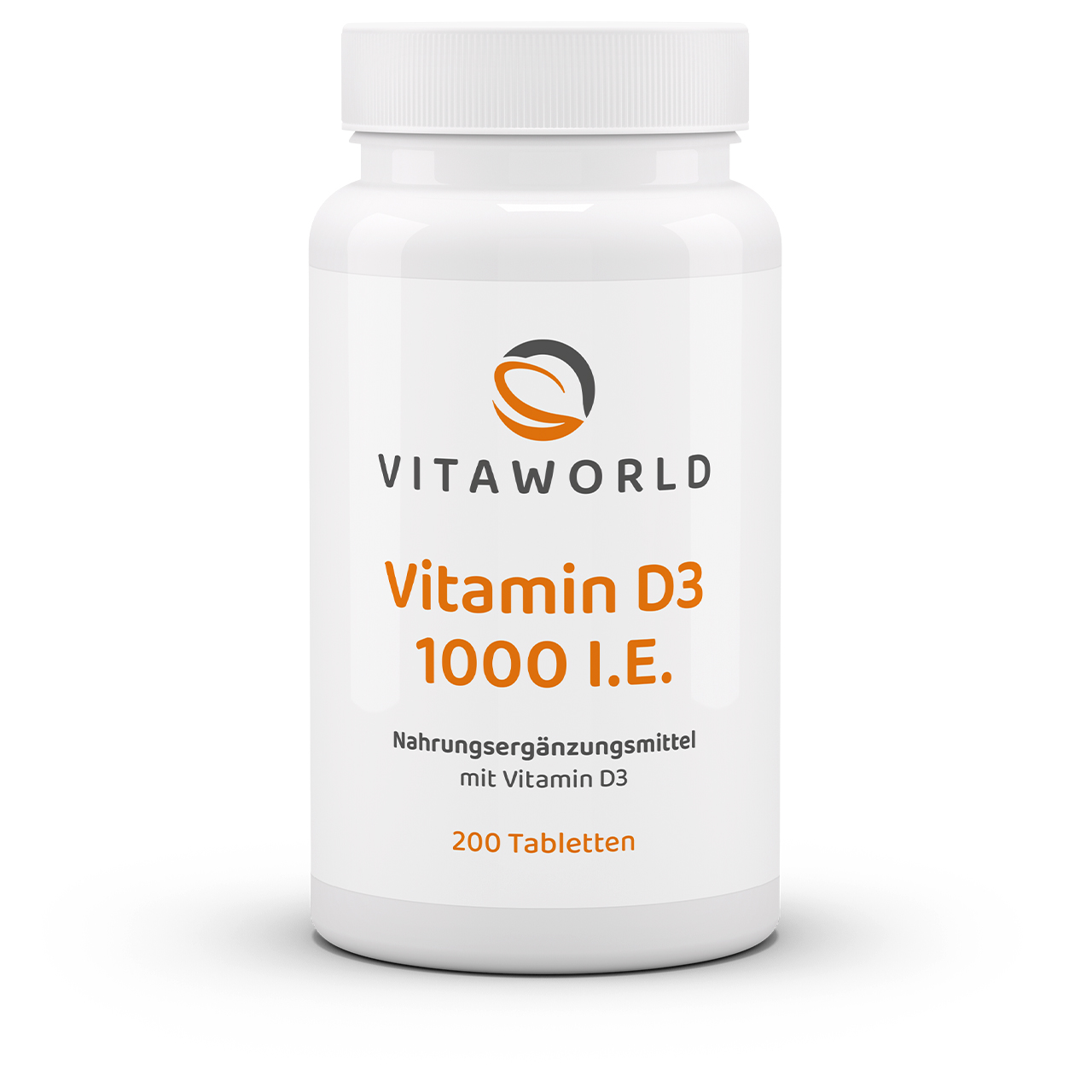
- Small, easy-to-dose tablets – ideal for daily use
- Contributes to maintaining normal bones, muscles and the immune system
- The sun vitamin – valuable during periods of low light
Content: 0.0276 Kilogramm (€322.46 / 1 Kilogramm)
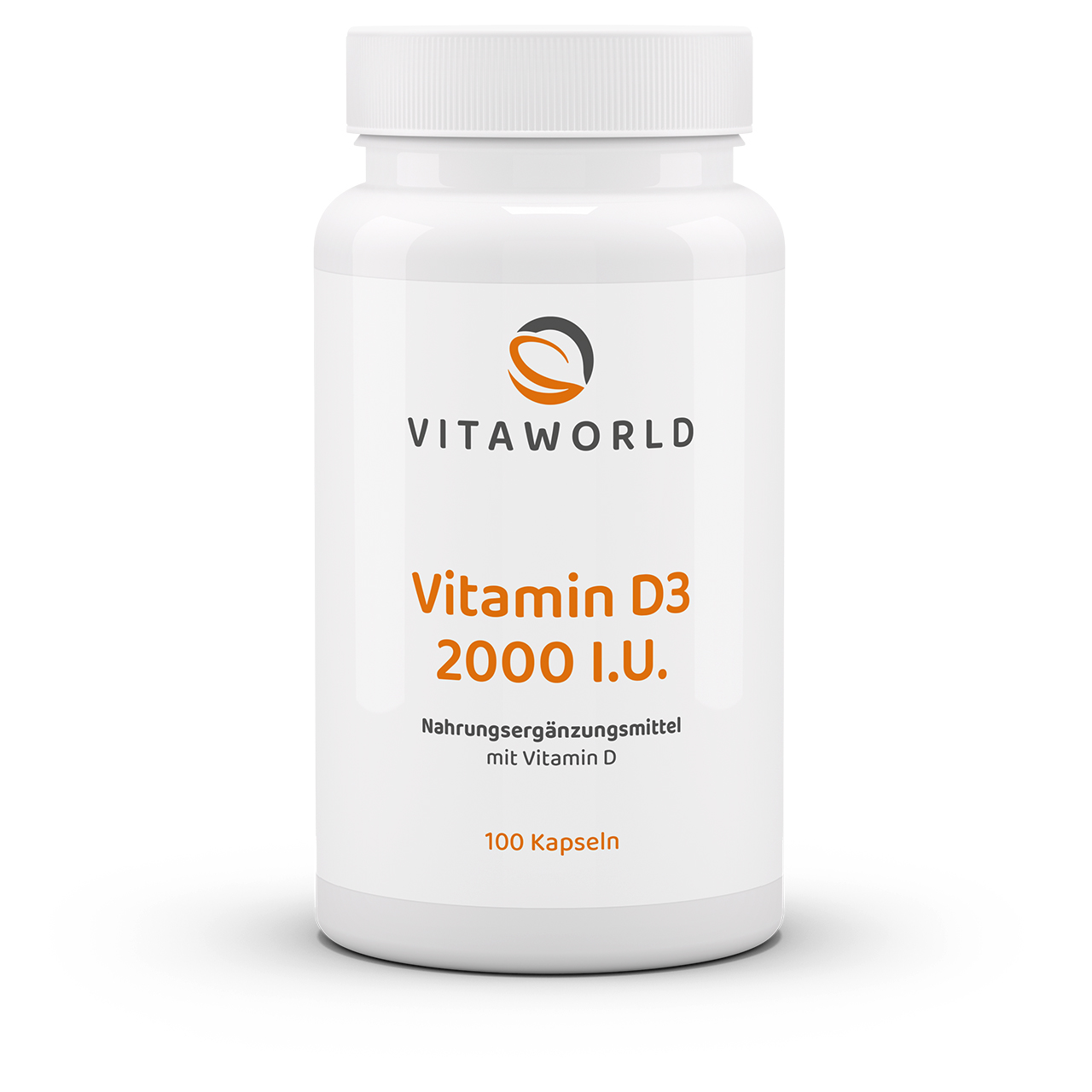
- Practical dosage – ideal for your daily vitamin D routine
- Contributes to the maintenance of normal bones, muscles and the immune system
- The sun vitamin – valuable in times of low light
Content: 0.028 Kilogramm (€389.29 / 1 Kilogramm)
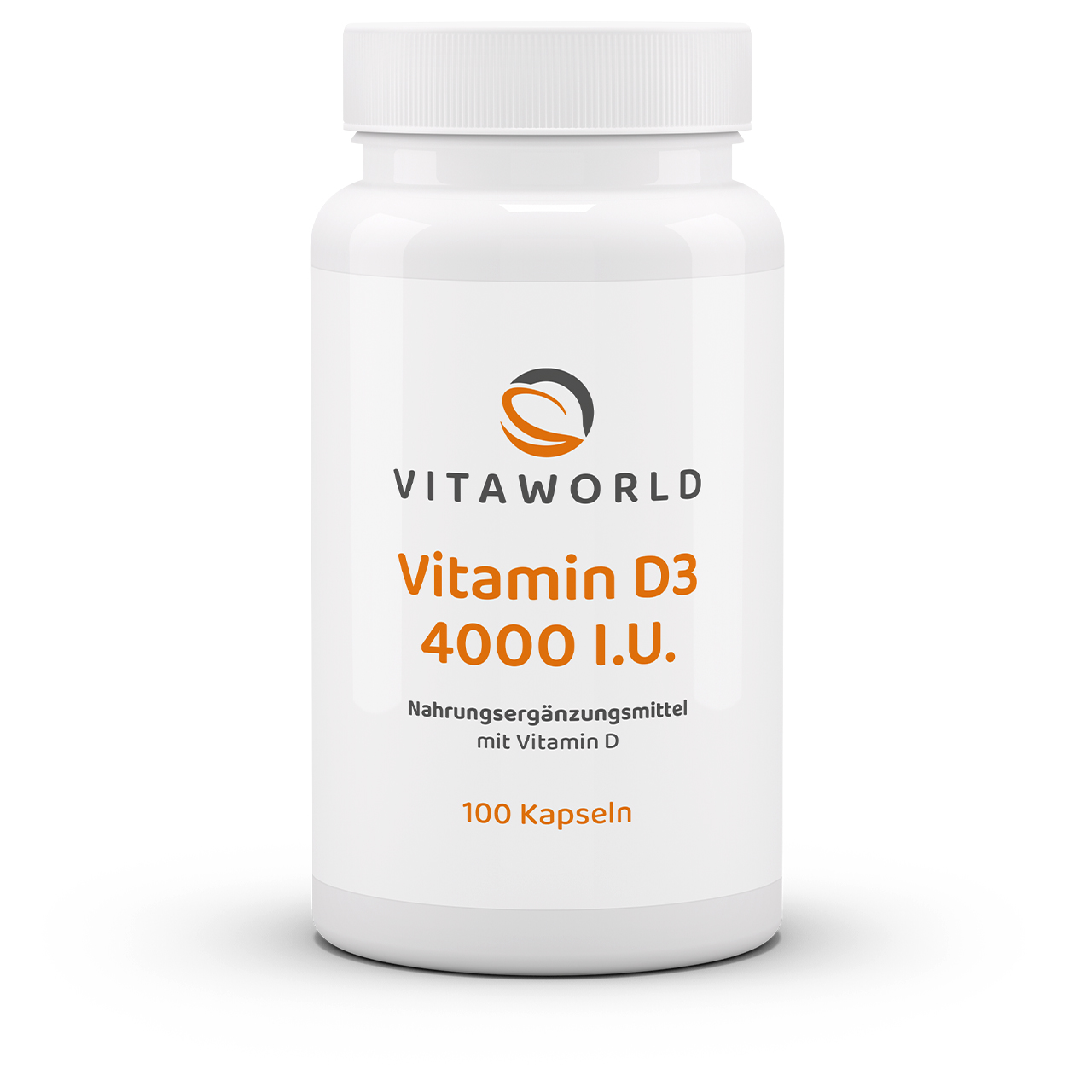
- Practical dosage – ideal for your daily vitamin D routine
- Contributes to the maintenance of normal bones, muscles and the immune system
- The sun vitamin – valuable in times of low light
Content: 0.0215 Kilogramm (€693.02 / 1 Kilogramm)

- Liquid D3 in MCT oil – easily absorbed & neutral taste
- Individually dosable – flexible for everyday use
- Coconut-based MCT oil – neutral taste & easily digestible
Content: 0.05 Liter (€398.00 / 1 Liter)
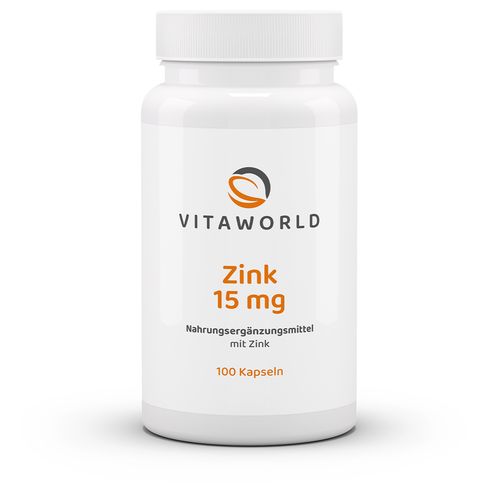
- 15 mg pure zinc – daily for your well-being
- Supports the immune system, cell protection and hormone metabolism
- Ideal for support during demanding times
Content: 0.0215 Kilogramm (€460.47 / 1 Kilogramm)
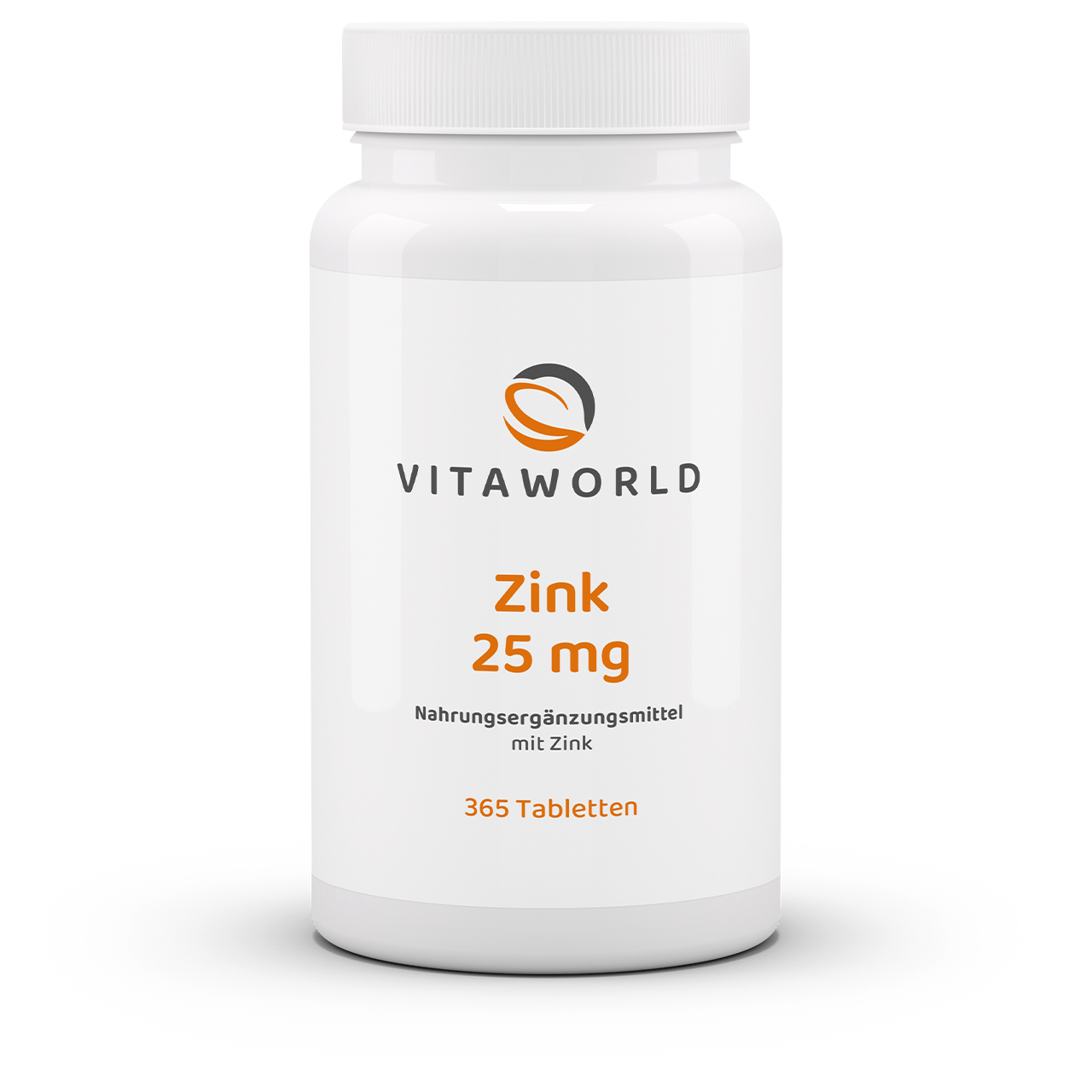
- 25 mg pure zinc – daily for your well-being
- Supports the immune system, cell protection and hormone metabolism
- Ideal for support during demanding times
Content: 0.0913 Kilogramm (€217.96 / 1 Kilogramm)
